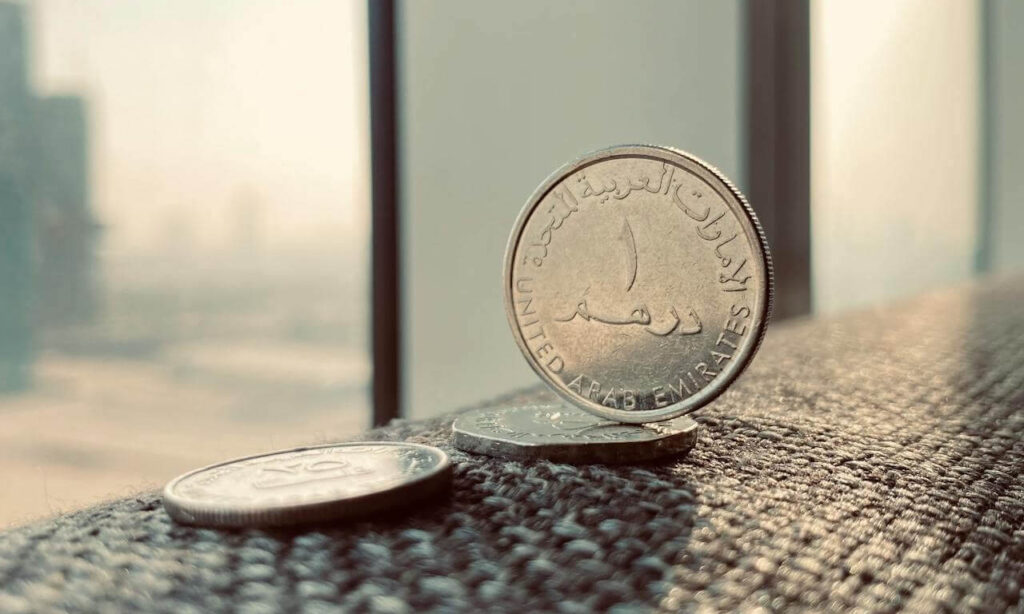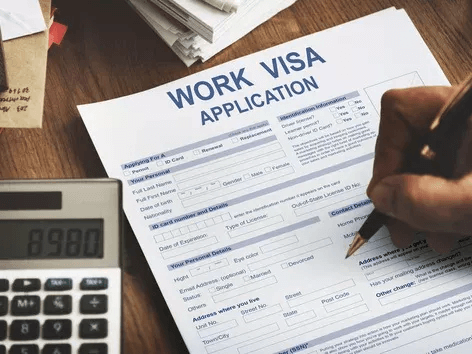Dubai has long enjoyed a global reputation as a glittering metropolis offering world-class amenities, luxurious lifestyles, and—most famously—a “tax-free” environment. Which begs the question: is Dubai tax-free as the majority claim?
This article aims to clarify whether Dubai is truly tax-free, explore the various taxes and fees that do exist, and provide a comprehensive understanding of what living and working in Dubai really entails from a financial perspective.
From entrepreneurs seeking to maximize business profits to expatriates attracted by higher net salaries, Dubai’s 0% personal income tax has drawn a myriad of people from around the world. However, the phrase “tax-free” can be misleading when taken at face value.
Although Dubai does offer significant tax advantages in certain areas, there are also indirect taxes, fees, and levies that residents and businesses must consider.
Dubai’s Tax-Free Status
When people describe a city or country as “tax-free,” they usually refer to the absence of personal income tax. In Dubai, residents indeed benefit from a 0% personal income tax, which means that the salary you earn is yours to keep.
This is the cornerstone of Dubai’s tax-free status and a major reason why it stands out among global financial hubs such as New York, London, and Tokyo, which impose relatively high tax rates on individuals.
Yet “tax-free” can be a bit of a misnomer. Even places touted as tax havens will have to generate government revenue somehow.
In Dubai, this is primarily done through indirect taxes, such as Value Added Tax (VAT), and a variety of fees for services ranging from housing to transportation.
Cities like Monaco and some Caribbean islands also market themselves as tax havens, yet residents inevitably pay for government services through other channels.
Personal Income Tax: Dubai vs. Other Major Cities
To put Dubai’s 0% personal income tax into perspective, consider an annual salary of $100,000. In Dubai, you would take home nearly every dollar of that salary, whereas in many other global financial centers, you could be paying taxes of up to 45%.
Below is a simplified breakdown:
| City | Annual Salary | Tax Rate | Net Income |
|---|---|---|---|
| Dubai | $100,000 | 0% | $100,000 |
| New York | $100,000 | 37% | $63,000 |
| London | $100,000 | 45% | $55,000 |
| Tokyo | $100,000 | 45% | $55,000 |
| Sydney | $100,000 | 45% | $55,000 |
Clearly, the tax advantage for individuals in Dubai is substantial. When comparing net salaries, Dubai offers a compelling financial reason for expatriates to relocate.
In practical terms, this can mean more disposable income, greater savings, and higher investment potential.
Corporate Tax and VAT in Dubai
While Dubai remains attractive to individuals due to its personal income tax policy, the corporate tax landscape is evolving.
Corporate Tax
Historically, Dubai had no corporate tax for most businesses, though banks and energy companies have long faced certain levies.
Starting from 2023, the UAE introduced a 9% corporate tax on taxable income above AED 375,000. This measure is part of the country’s move to align with international standards and diversification goals.
Additionally, from 2025, multinational enterprises operating in the UAE will be subject to a 15% corporate tax if they meet specific revenue thresholds.
This change is aligned with the global minimum corporate tax initiative aimed at discouraging profit-shifting by large international corporations.
Value Added Tax (VAT)
In 2018, the UAE introduced a 5% VAT on most goods and services. This marked a significant shift for a region historically known for its zero-tax environment.
While 5% is relatively low compared to Europe and many other parts of the world, it still represents a noteworthy indirect cost.
Within the Gulf Cooperation Council (GCC), Saudi Arabia raised its VAT to 15%, while Bahrain increased its rate to 10%.
Dubai’s 5% thus remains on the lower end regionally but is a departure from the pure “tax-free” image many associate with the city.
Indirect Taxes in Dubai
Beyond corporate tax and VAT, residents encounter an array of additional fees and indirect taxes, which can add up over time.
- Housing-Related Fees
- Municipality Fee: A 5% municipality fee is levied on the annual rental value for tenants. This fee is usually added to the monthly utility bill, meaning it becomes part of the recurring living costs.
- Property Transfer Fee: For those purchasing property, a 4% transfer fee is imposed on the total sale price. This is a significant cost for real estate transactions and should be factored into initial investment calculations.
- Utilities and Living Costs
- DEWA Fees: Dubai Electricity and Water Authority (DEWA) provides utilities, and charges can be relatively high compared to other cities—although the efficiency of these services is generally excellent.
- Chiller Charges: In many apartment complexes, the cost of cooling (air conditioning) may or may not be included in the rent. If not included, this can be substantial, especially during the hot summer months.
- Internet and TV: While not a “tax,” these services come at a premium, sometimes more expensive than in other countries, adding to the overall cost of living.
- Other Taxes and Fees
- Customs Duty: A 5% customs duty is applied to most imported goods. Although this typically gets embedded in the retail price, residents feel the effects when purchasing non-local items.
- Tourism Dirham: Hotel stays and short-term accommodations incur a “tourism dirham,” which ranges depending on the hotel’s rating and is added to the bill as a per-night fee.
- Salik Tolls: Dubai uses a toll system called Salik on some major roads. Each trip through a toll gate costs a set fee, which can accumulate for frequent drivers.
- Excise Taxes: Additional taxes are imposed on tobacco products and sugary drinks to discourage their consumption.
Though each fee may appear minimal on its own, the cumulative effect can be significant.
If you’re looking to move to Dubai as an expat, you should factor these costs into their financial planning to gain a realistic understanding of living and operating in the city.
Cost of Living vs. Tax Savings
Dubai’s high cost of living is a common point of discussion among expatriates. Housing, education, and healthcare can be notably expensive, sometimes among the highest in the region.
While the lack of income tax certainly allows residents to keep more of their paycheck, they must still budget carefully to cover essentials.
Whether the tax savings offset the cost of living depends heavily on individual lifestyle choices and circumstances.
For example, opting for a more modest apartment, using public transportation where possible, and taking advantage of employer-provided health insurance can help mitigate some of the higher living expenses.
Families that require private schooling for children should also investigate education allowances from employers to make a move more financially viable.
Comparing Dubai with GCC
When considering a move to the Middle East, one may wonder how Dubai’s tax environment compares with that of other cities in the region.
Nations like Saudi Arabia, Kuwait, and Qatar also have 0% personal income tax, though each has variations in corporate tax laws and fees.
- Corporate Tax: Dubai currently levies 9% on taxable income above AED 375,000, aligning with global norms. Other Gulf nations are likely to adjust their corporate tax frameworks over time to meet international standards.
- VAT: Within the GCC, Saudi Arabia’s VAT rate is 15%, and Bahrain’s is 10%. Dubai’s 5% remains on the lower end, which helps maintain its competitive edge as a commercial hub.
Ultimately, Dubai’s main draw is not just the 0% personal income tax, but also its business-friendly infrastructure, robust financial services sector, and cosmopolitan lifestyle—all factors that set it apart within the region.
Benefits of Dubai’s Tax-Free Status
Despite the existence of indirect taxes and fees, Dubai still holds a strong competitive advantage for both individuals and corporations.
- For Individuals
- Increased Disposable Income: With no personal income tax, the take-home pay for most residents is substantially higher compared to many Western countries.
- Enhanced Savings and Investment Potential: Higher disposable income can be channeled into investments or savings, allowing expatriates to build wealth more rapidly than they might elsewhere.
- For Businesses
- Low Operational Costs: Although corporate taxes are now applicable above certain thresholds, overall rates remain relatively low, offering a compelling environment for startups and established enterprises alike.
- Attractive for Foreign Direct Investment (FDI): The UAE has negotiated numerous Double Taxation Agreements (DTAs), which mitigate the risk of being taxed twice in different jurisdictions. This further enhances Dubai’s appeal as a global business hub.
Is Dubai Really Tax Free?
Dubai’s tax advantages are real and significant for both individuals and businesses. The absence of personal income tax remains a cornerstone of its global appeal, offering expatriates the potential for higher disposable income and accelerated savings.
Businesses also find the city enticing due to relatively low corporate tax rates, strategic location, and a wide network of double taxation agreements.
However, it is crucial to recognize that Dubai is not entirely “tax-free” once you account for indirect taxes, fees, and the overall high cost of living.
Potential residents and investors should engage in meticulous financial planning, taking into account rent, utilities, municipality fees, VAT, and other hidden costs.
While these fees and levies might not outweigh the benefits of zero personal income tax, they do play a significant role in shaping the true cost of living and operating in the emirate.
In the end, Dubai’s success in balancing its tax-free image with strategic revenue-generating mechanisms has cemented its status as a prime destination for global talent and entrepreneurs.
For those prepared to navigate the high costs and evolving regulations, Dubai offers an unparalleled blend of financial opportunities, lifestyle, and cultural diversity—making it an increasingly popular choice for both career development and investment.





